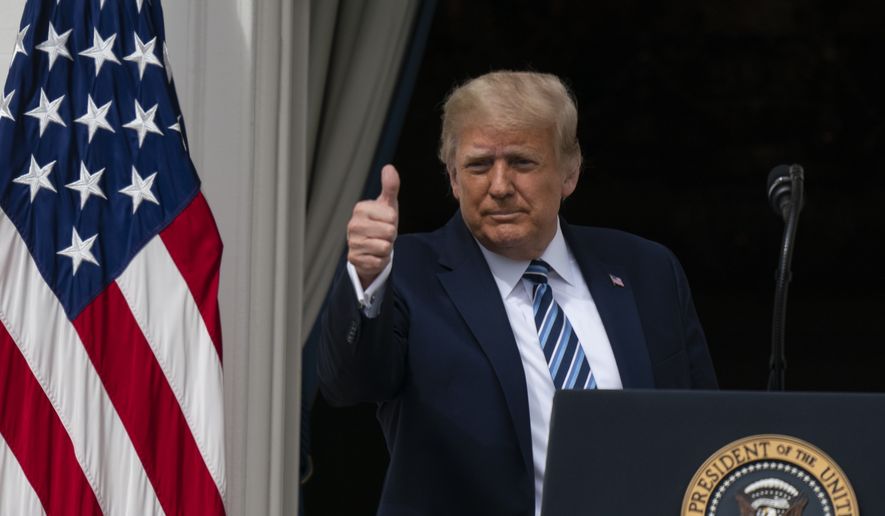The Supreme Court dismissed lawsuits against former President Donald Trump on Monday that claimed he violated the Constitution by accepting gifts from foreign officials.
The legal battles concerned the Emoluments Clause, which bans government officials from receiving gifts or profit from foreign entities while in office. The lawsuits claimed Mr. Trump’s commercial businesses made profits from foreign officials during his time as president in violation of the law.
The justices, though, remanded the cases back to the lower courts Monday with instructions to vacate and dismiss the legal battles as moot. The move came just days after Mr. Trump formally left office and is no longer a government official.
Lawyers disagreed with each other over the justices’ move.
Seth Abramson, a lawyer and Newsweek columnist, said the court’s delay in weighing the matter caused the issue to not be adjudicated.
The Supreme Court “has made the Emoluments Clause non-justiciable — as it takes so long to bring an action of this sort against a sitting [president] that as long as he’s not reelected the case won’t be heard. Why [the Supreme Court] doesn’t understand the presidency creates justiciability dangers, I don’t know,” he tweeted.
But George Conway, a lawyer and a Never-Trump Republican, disagreed, saying on Twitter the legal issue is “unquestionably moot.”
“The cases did not seek retrospective relief, such as damages, but rather only prospective relief — declarations and and injunctions addressing future conduct. But he can’t violate the emoluments clause any more, since he’s no longer president,” Mr. Conway tweeted.
It’s not uncommon for the justices to delay taking up certain legal battles that have political impact, as the high court still has about a half-dozen challenges against the November election still pending even after President Biden’s inauguration last week.
One of the Emoluments lawsuits that the justices bucked was brought by the liberal watchdog group Citizens for Responsibility and Ethics in Washington, while the other was brought by the state of Maryland and Washington, D.C.
Karl A. Racine, attorney general for the District of Columbia, and Brian E. Frosh, attorney general of Maryland, touted their historic anti-corruption lawsuit in a joint statement, noting the high court only dismissed it as moot because Mr. Trump is no longer president.
“We are proud that because of our case, a court ruled on the meaning of ‘emoluments’ for the first time in American history, finding that the Constitution prohibits federal officials from accepting almost anything of value from foreign or domestic governments,” they said.
Their lawsuit focused its concerns on the Trump International Hotel on Pennsylvania Avenue, noting in court documents that “officials of a number of foreign and state governments have patronized the Hotel, and that ‘the President’s receipt of benefits from these sources violates both the Foreign and Domestic Emoluments Clauses.’”
The CREW lawsuit was filed on behalf of other hotels, arguing they suffered competitive disadvantage as foreign officials would choose to stay at the former president’s businesses to garner his favor.
“Almost exactly four years to the day after we filed our historic Emoluments Clause case, it ends in the Supreme Court. It’s important to remember that the case only ends because Trump is no longer president, so is no longer violating the Constitution,” CREW said in a post on Twitter.
Mr. Trump had challenged both lawsuits, claiming plaintiffs did not suffer sufficient injury in either challenge. He lost his arguments in lower courts, which led to the former president filing petitions before the justices while he was still in office. But the high court ruled Monday that the cases were moot and ordered lower courts to dismiss them.
• Alex Swoyer can be reached at aswoyer@washingtontimes.com.




Please read our comment policy before commenting.